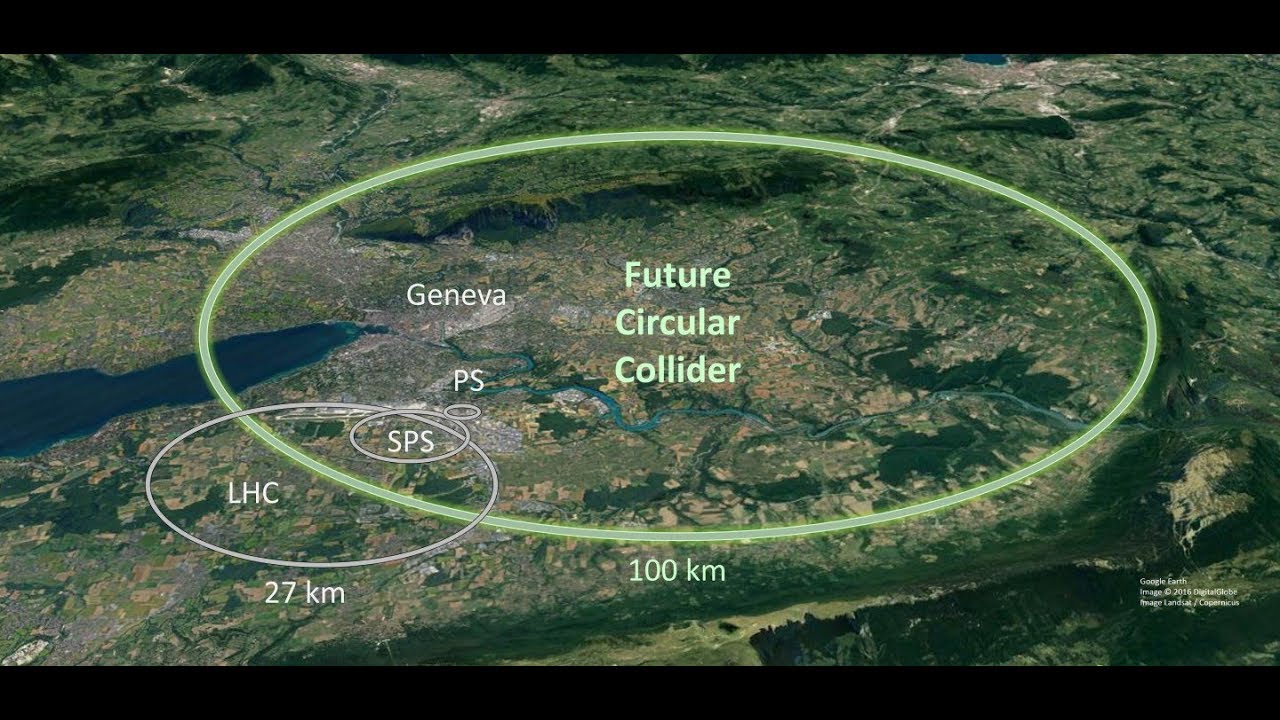- Courses
- GS Full Course 1 Year
- GS Full Course 2 Year
- GS Full Course 3 Year
- GS Full Course Till Selection
- Answer Alpha: Mains 2025 Mentorship
- MEP (Mains Enrichment Programme) Data, Facts
- Essay Target – 150+ Marks
- Online Program
- GS Recorded Course
- Polity
- Geography
- Economy
- Ancient, Medieval and Art & Culture AMAC
- Modern India, Post Independence & World History
- Environment
- Governance
- Science & Technology
- International Relations and Internal Security
- Disaster Management
- Ethics
- NCERT Current Affairs
- Indian Society and Social Issue
- NCERT- Science and Technology
- NCERT - Geography
- NCERT - Ancient History
- NCERT- World History
- NCERT Modern History
- CSAT
- 5 LAYERED ARJUNA Mentorship
- Public Administration Optional
- ABOUT US
- OUR TOPPERS
- TEST SERIES
- FREE STUDY MATERIAL
- VIDEOS
- CONTACT US
Future Circular Collider (FCC)
Future Circular Collider (FCC)
01-04-2025

- The Future Circular Collider (FCC) is a proposed next-generation particle accelerator intended to succeed the Large Hadron Collider (LHC) at CERN.
- This ambitious project is designed to further our understanding of the universe’s fundamental nature, but it also raises concerns about monopolizing scientific funding and potentially limiting alternative research directions.
About the Future Circular Collider (FCC)
- CERN (European Organization for Nuclear Research):
CERN is a globally renowned scientific organization dedicated to unraveling the mysteries of the universe. As one of the world's leading research institutions, it operates some of the most advanced particle accelerators and conducts cutting-edge experiments in the field of nuclear physics. - Ambitious Proposal:
The FCC is intended to be a more powerful and advanced successor to the LHC, pushing the boundaries of particle physics further by enabling even more energetic particle collisions.
Scientific Objectives of the Future Circular Collider
- Addressing Unanswered Questions from the LHC
The LHC made groundbreaking discoveries, notably the detection of the Higgs boson, but it also left several questions unanswered. - The FCC aims to explore these unresolved mysteries, such as the role of the Higgs boson in the Big Bang and how it influenced the formation of the universe.
- Exploring Beyond the Standard Model
- One of the key goals of the FCC is to investigate phenomena that lie beyond the Standard Model of particle physics.
- While the LHC made significant strides in discovering elementary particles, it has yet to uncover any new particles beyond the Higgs boson.
- The FCC hopes to expand on this by probing deeper into the subatomic world and potentially discovering new forces or particles.
Concerns Surrounding the Future Circular Collider
While the FCC holds the promise of advancing our understanding of the universe, there are concerns about its implications for the scientific community:
- Monopolization of Funding:
The scale and cost of the FCC could monopolize a significant portion of global funding for particle physics research, potentially limiting resources for other promising research initiatives. - Restricting Alternative Research:
The immense investment required for the FCC may steer focus away from other important scientific directions, restricting diversity in research within the field of particle physics.
|
Also Read |
|
| FREE NIOS Books | |




